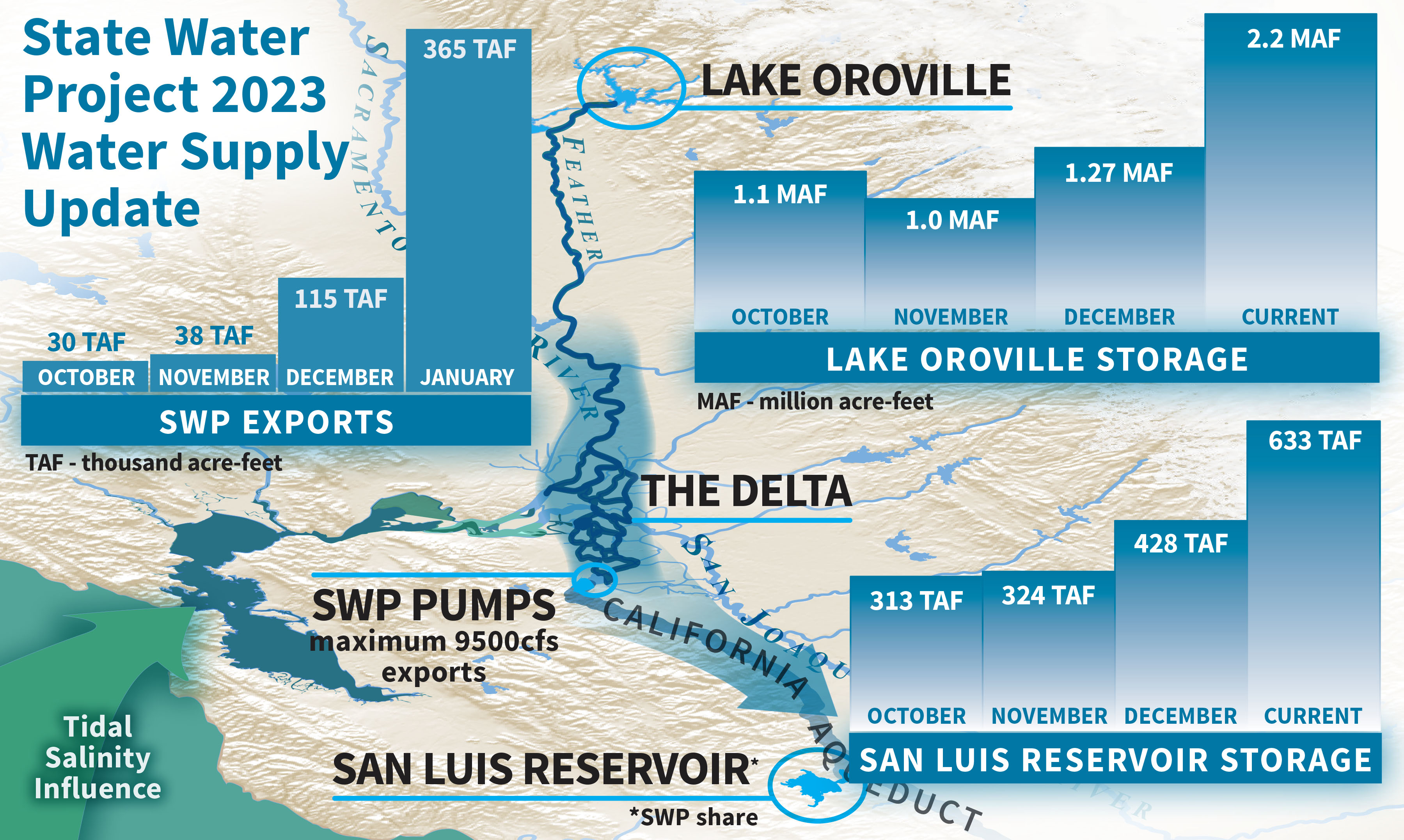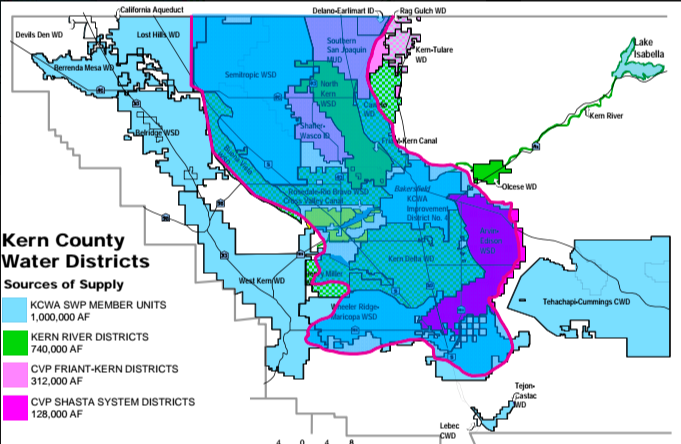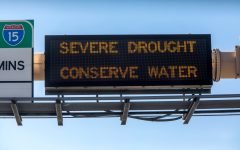
SWP 2023 Water Supply Update (Photo: water.ca.gov)
State Increases Public Water Agency Allocations From 5% To 30% Due To Unprecedented Rainfall, Snowfall
Officials warn that 30% figure won’t last if California hits another dry spell
By Evan Symon, January 27, 2023 7:00 am
The California Department of Water Resources (DWR) announced on Thursday that due to the amount of snowpack and higher reservoir levels as a result of numerous storms earlier this month, the State Water Project (SWP) will boost deliveries to 29 more public water agencies in 2023, moving the total allocation amount from 5% to 30%.
Due to the drought occurring in California for the past several years, SWP allocation amounts have steadily gone down. The amount dipped below 30% in 2019, with allocation being only at 5% since March of 2022 and water only going out to the most hard hit areas. Last month, the agency had reconfirmed that 5% figure for 2023.
However, a series of destructive atmospheric river events began to strike California late last month, and did not let up until mid-January. While the storms caused flooding, landslides, power outages, and other damages throughout California, it did have the positive effect of bringing over three feet of much needed rain and even more snow. By the time the storms ended, once critically low reservoir levels over doubled in the amount of water, such as Lake Oroville going from under 30% capacity to 63% capacity. Snowpack, critical for continued water coming for the year, also increased dramatically, reaching above 250%.
While experts still warn of a drought in 2023, especially if temperatures warm up and the snowpack goes below 100% by April 1st, the added water allowed the DWR to increase the number of allocations.
“We are pleased that we can increase the allocation now and provide more water to local water agencies,” said DWR Director Karla Nemeth in a statement on Thursday. “These storms made clear the importance of our efforts to modernize our existing water infrastructure for an era of intensified drought and flood. Given these dramatic swings, these storm flows are badly needed to refill groundwater basins and support recycled water plants.”
More water for California
Metropolitan Water District of Southern California (MWD) General Manager Adel Hagekhalil added on Thursday that “Depleted state reservoirs are starting to recover from record lows, and this increased allocation will certainly help communities hit hardest by this drought recover as well. But make no mistake, while the recent storms will help alleviate the acute emergency in areas dependent on supplies from the State Water Project, Southern California’s water challenges are far from over. We continue to draw down our largest local reservoir, Diamond Valley Lake, to meet demands.”
Governor Gavin Newsom responded to the news later on Thursday, noting that water infrastructure modernization was also still needed.
“Thanks to the water captured and stored from recent storms, the state is increasing deliveries to local agencies that support two-thirds of Californians – good news for communities and farms in the Bay Area, San Joaquin Valley and Southern California,” said Governor Newsom. “We’ll keep pushing to modernize our water infrastructure to take advantage of these winter storms and prepare communities for the climate-driven extremes of wet and dry ahead.”
The new 30% allocation isn’t set in stone however, with it possible to go back down in a few months dependent on if temperatures rise and water levels stay steady. DWR snow surveys on February 1, March 1, April 1, and May 1 are especially important, as a less than 100% snowpack level could drastically change the allocation level yet again. Starting in February, assessments will incorporate snowpack data and runoff forecasts.
“The allocation amount is huge,” Jack Wesley, a water systems consultant for farms and multi-family homes, told the Globe on Thursday. “That will throw the lawmakers off of state agencies backs for a bit, especially for state representatives that serve more rural and agricultural areas. But, just like everyone has been saying, it will really depend what the rest of the wet season will bring. We get some more rainfall and some storms, we’ll be ok it sounds like. But if we remain dry, we’ll see allocations drop and restrictions come back in full force. We’re playing the waiting game right now. But in the meantime, it’s cause for a small celebration of more water going out.”
Reservoir and snowpack level updates are expected soon.
- Bill to Require Law Enforcement Disclosure if AI Was Used To Help Write Reports - August 7, 2025
- Gov. Newsom Files FOIA Request To ‘Expose True Cost’ Of L.A. Federal Troop Deployment for Anti-ICE Riots - August 6, 2025
- California Redistricting: How Newsom’s Plan Will Demolish Hard Fought GOP Gains - August 6, 2025





So the California Department of Water Resources will boost deliveries to 29 more public water agencies in 2023, moving the total allocation amount from 5% to 30%? The reality is that most of the water from the record snowpack will be allowed to flow out to the ocean because Democrats who control the legislature refuse to build new water storage facilities.
Is this rain “unprecedented”? According to the rainfall graphs published by the CDEC the rainfall is on track to be be notable but as of this date it is not exactly record setting.